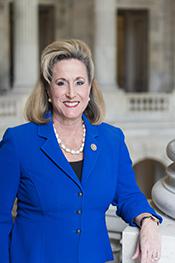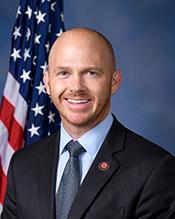0
0
0
Proposing an amendment to the Constitution of the United States to limit the number of terms that a Member of Congress may serve.
1/3/2024, 5:45 PM
Summary of Bill HJRES 11
Bill 118 hjres 11, also known as the Term Limits Amendment, proposes an amendment to the Constitution of the United States that would limit the number of terms a Member of Congress may serve. The bill aims to address concerns about career politicians and the need for fresh perspectives in government.
If passed, the Term Limits Amendment would restrict Members of Congress to serving a maximum of three terms in the House of Representatives and two terms in the Senate. This would apply to both current and future members, with no exceptions.
Supporters of the bill argue that term limits would help prevent corruption, promote turnover in government, and encourage a more diverse range of voices in Congress. They believe that limiting the number of terms a Member of Congress can serve would lead to increased accountability and effectiveness in government. Opponents of the bill, however, argue that term limits could lead to a loss of institutional knowledge and experience in Congress. They believe that voters should have the ultimate say in whether a Member of Congress should continue to serve, rather than imposing arbitrary limits on their terms. Overall, the Term Limits Amendment has sparked a lively debate among lawmakers and the public about the benefits and drawbacks of imposing term limits on Members of Congress. It remains to be seen whether the bill will gain enough support to pass and become a part of the Constitution of the United States.
If passed, the Term Limits Amendment would restrict Members of Congress to serving a maximum of three terms in the House of Representatives and two terms in the Senate. This would apply to both current and future members, with no exceptions.
Supporters of the bill argue that term limits would help prevent corruption, promote turnover in government, and encourage a more diverse range of voices in Congress. They believe that limiting the number of terms a Member of Congress can serve would lead to increased accountability and effectiveness in government. Opponents of the bill, however, argue that term limits could lead to a loss of institutional knowledge and experience in Congress. They believe that voters should have the ultimate say in whether a Member of Congress should continue to serve, rather than imposing arbitrary limits on their terms. Overall, the Term Limits Amendment has sparked a lively debate among lawmakers and the public about the benefits and drawbacks of imposing term limits on Members of Congress. It remains to be seen whether the bill will gain enough support to pass and become a part of the Constitution of the United States.
Congressional Summary of HJRES 11
This joint resolution proposes a constitutional amendment limiting Representatives to three terms and Senators to two terms. Terms beginning before the ratification of this amendment do not count towards these term limits.
Read the Full Bill
Current Status of Bill HJRES 11
Bill HJRES 11 is currently in the status of Bill Introduced since January 9, 2023. Bill HJRES 11 was introduced during Congress 118 and was introduced to the House on January 9, 2023. Bill HJRES 11's most recent activity was Defeated Measure by the Yeas and Nays: 17 - 19. as of September 28, 2023
Bipartisan Support of Bill HJRES 11
Total Number of Sponsors
1Democrat Sponsors
0Republican Sponsors
1Unaffiliated Sponsors
0Total Number of Cosponsors
206Democrat Cosponsors
8Republican Cosponsors
198Unaffiliated Cosponsors
0Policy Area and Potential Impact of Bill HJRES 11
Primary Policy Focus
CongressPotential Impact Areas
- Congressional elections
- Constitution and constitutional amendments
- House of Representatives
- Members of Congress
- Senate
Alternate Title(s) of Bill HJRES 11
Proposing an amendment to the Constitution of the United States to limit the number of terms that a Member of Congress may serve.
Proposing an amendment to the Constitution of the United States to limit the number of terms that a Member of Congress may serve.
Comments
Sponsors and Cosponsors of HJRES 11
Latest Bills
National Defense Authorization Act for Fiscal Year 2026
Bill S 1071December 13, 2025
Enduring Justice for Victims of Trafficking Act
Bill S 2584December 13, 2025
Technical Corrections to the Northwestern New Mexico Rural Water Projects Act, Taos Pueblo Indian Water Rights Settlement Act, and Aamodt Litigation Settlement Act
Bill S 640December 13, 2025
Incentivizing New Ventures and Economic Strength Through Capital Formation Act of 2025
Bill HR 3383December 13, 2025
BOWOW Act of 2025
Bill HR 4638December 13, 2025
Northern Mariana Islands Small Business Access Act
Bill HR 3496December 13, 2025
Wildfire Risk Evaluation Act
Bill HR 3924December 13, 2025
Energy Choice Act
Bill HR 3699December 13, 2025
ESTUARIES Act
Bill HR 3962December 13, 2025
Improving Interagency Coordination for Pipeline Reviews Act
Bill HR 3668December 13, 2025
A joint resolution proposing an amendment to the Constitution of the United States relative to limiting the number of terms that a Member of Congress may serve.
Bill SJRES 2December 15, 2023
A joint resolution proposing amendments to the Constitution of the United States relative to the line item veto, a limitation on the number of terms that a Member of Congress may serve, and requiring a vote of two-thirds of the membership of both Houses of Congress on any legislation raising or imposing new taxes or fees.
Bill SJRES 1December 15, 2023
Proposing an amendment to the Constitution of the United States to limit the number of terms that a Member of Congress may serve.
Bill HJRES 3December 15, 2023





